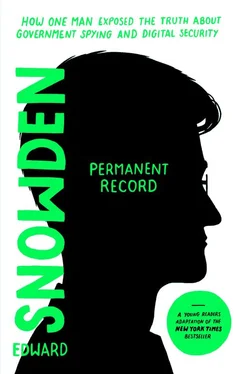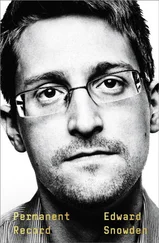I was especially involved with the Web-based bulletin-board systems or BBSs. On these, you could pick a username and type out whatever message you wanted to post, either adding to a preexisting group discussion or starting a new one. Imagine the longest email chain you’ve ever been on, but in public. These were also chat applications, which provided an instant message version of the same experience. There you could discuss any topic in real time.
Most of the messaging and chatting I did was in search of answers to questions I had about how to build my own computer, and the responses I received were so considered and thorough, so generous and kind, they’d be unthinkable today. My panicked query about why a certain chipset for which I’d saved up my allowance didn’t seem to be compatible with the motherboard I’d already gotten for Christmas received a two-thousand-word explanation from a professional tenured computer scientist on the other side of the country. I was twelve years old, and my correspondent was an adult stranger far away, yet he treated me like an equal because I’d shown respect for the technology.
I attribute this civility, so far removed from our current social media sniping, to the fact that the only people on these boards were the people who wanted to be there badly enough—who had the proficiency and passion. The internet of the 1990s wasn’t just one click away. It took significant effort just to log on.
Once, a certain BBS that I was on tried to coordinate in-the-flesh meetings of its regular members throughout the country: in DC, in New York, at the Consumer Electronics Show in Las Vegas. After being pressured rather hard to attend—and promised extravagant evenings of eating and drinking—I finally told everyone how old I was. I was afraid that some of my correspondents might stop interacting with me, but instead they became, if anything, even more encouraging. I was sent updates from the electronics show and images of its catalog; one guy offered to ship me secondhand computer parts through the mail, free of charge.
* * *
I might have told the BBSers my age, but I never told them my name, because one of the greatest joys of these platforms was that on them I didn’t have to be who I was. I could be anybody. I could take cover under virtually any handle, or “nym,” as they were called, and suddenly become an older, taller, manlier version of myself. I could even be multiple selves. I took advantage of this feature by asking my more amateur questions on what seemed to me the more amateur boards under different personas each time. My computer skills were improving so swiftly that I was embarrassed by my previous ignorance and wanted to distance myself from it. I wanted to disassociate my selves.
The internet back then had yet to fall victim to the move by both governments and businesses to link users’ online personas to their offline legal identity. Kids used to be able to go online and say the dumbest things one day without having to be held accountable for them the next. That scenario actually encouraged me and those of my generation to change our most deeply held opinions, instead of just digging in and defending them when challenged. This ability to reinvent ourselves meant that we never had to close our minds by picking sides. Mistakes were swiftly punished, but also swiftly rectified, and that allowed both the community and the “offender” to move on. To me, and to many, this felt like freedom. Imagine: You could wake up every morning and pick a new name and a new face by which to be known to the world, as if the internet button were actually a reset button for your life.
All teens are hackers. They have to be, if only because their life circumstances are untenable and they’re willing to do anything to evade parental supervision. Basically, they’re fed up with being on the losing end of an imbalance of power.
To grow up is to realize the extent to which your existence has been governed by systems of rules, vague guidelines, and increasingly unsupportable norms that have been imposed on you without your consent and are subject to change at a moment’s notice.
In school, you were told that in the system of American politics, citizens give consent through the franchise to be governed by their equals. This is democracy. But democracy certainly wasn’t in place in my US history class. If my classmates and I had had the vote, Mr. Martin would have been out of a job. If a teacher didn’t want you to go to the bathroom, you’d better hold it in. If a teacher promised a field trip but then canceled it for an imaginary infraction, they’d offer no explanation beyond citing their broad authority and the maintenance of proper order.
Even back then, I realized that any opposition to this system would be difficult. Getting rules changed would involve persuading the rule makers to put themselves at a disadvantage. That, ultimately, is the critical flaw in every system, in both politics and computing: The people who create the rules have no incentive to act against themselves.
So I started hacking—which remains the sanest, healthiest, and most educational way I know for anyone to assert autonomy and address people on equal terms.
Like most of my classmates, I didn’t like the rules but was afraid of breaking them. I knew how the system worked: You corrected a teacher’s mistake, you got a warning; you confronted the teacher when they didn’t admit the mistake, you got detention; someone cheated off your exam, and though you didn’t expressly let them cheat, you got detention and the cheater got suspended.
This is the origin of all hacking: the awareness of a link between input and output, between cause and effect. Hacking isn’t just native to computing—it exists wherever rules do. To hack a system requires getting to know its rules better than the people who created it or are running it, and taking advantage of the space between how those people had intended the system to work and how it actually works. In making the most of these unintentional uses, hackers aren’t breaking the rules so much as debunking them. Hacking is a reliable method for dealing with the type of authority figures so convinced of their system’s righteousness that it never occurred to them to test it.
I didn’t learn any of this at school, of course. I learned it online. The internet gave me the chance to pursue all the topics I was interested in, and all the links between them. The more time I spent online, the more my schoolwork felt extracurricular.
The summer I turned thirteen, I resolved to seriously reduce my classroom commitments. I wasn’t quite sure how I’d swing that, though. All the plans I came up with were likely to backfire. If I was caught skipping class, my parents would revoke my computer privileges; if I decided to drop out, they’d bury my body deep in the woods and tell the neighbors I’d run away. I had to come up with a hack—and then, on the first day of the new school year, I found one. Indeed, it was basically handed to me.
At the start of each class, the teachers passed out their syllabi, detailing the material to be covered, the required reading, and the schedule of tests and quizzes and assignments. Along with these, they gave us their grading policies, which were essentially explanations of how As, Bs, Cs, and Ds were calculated. I’d never encountered information like this. Their numbers and letters were like a strange equation that suggested a solution to my problem.
After school that day, I sat down with the syllabi and did the math to figure out which aspects of each class I could simply ignore and still expect to receive a passing grade. Take my US history class, for example. According to the syllabus, quizzes were worth 25 percent, tests were worth 35 percent, term papers were worth 15 percent, homework was worth 15 percent, and class participation—that most subjective of categories, in every subject—was worth 10 percent. Because I usually did well on my quizzes and tests without having to do too much studying, I could count on them for easy, time-efficient points. Term papers and homework, however, were the major time-sucks: low-value, high-cost impositions on Me Time.
Читать дальше












